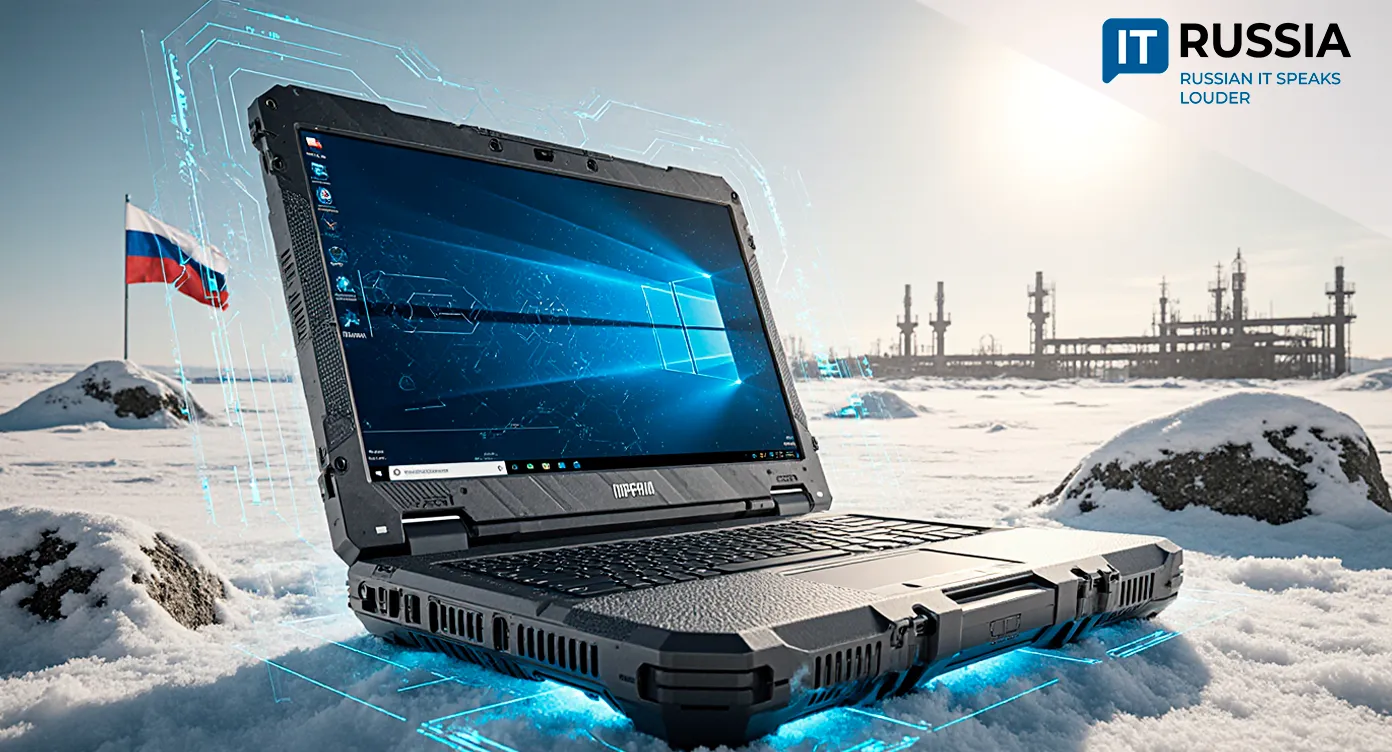Russia Launches Mass Production of 'Armor-Piercing' Computers

New Russian PCs, laptops, and tablets are designed to operate in the harshest environments—from Arctic frost to tropical heat.
Industrial Strength and Import Substitution
The Russian holding Rosel, part of the state corporation Rostec, has launched mass production of rugged computers—including laptops, panel PCs, and tablets. These devices are designed to automate workplaces and can function autonomously or as part of local networks in both stationary and mobile complexes.
Each product has undergone rigorous testing, including extreme climatic and mechanical stress. The equipment demonstrated stable operation at temperatures ranging from -40°F to +158°F (-40°C to +70°C). The computers are built for toughness: they can withstand shocks up to 75 g—comparable to a frontal car collision at 50–60 km/h—and are resistant to vibration, moisture, and dust.
The real significance of the new product lies in its complete technological autonomy. The rugged computers run entirely on a Russian hardware-software platform, including a domestically developed BIOS and a certified Russian secure boot module.

Rostec is already supplying these devices to its own enterprises, but the company plans to scale production further, aiming to make the offering more competitive. In the near future, contracts are expected with the Ministry of Defense and major industrial firms.
Russian Toughness
The new devices are designed for Russia’s security agencies and key sectors of the national economy—energy, transport, oil and gas, and companies operating in severe climates. These industries demand equipment that works without failure under critical conditions. The devices are particularly valuable in the Arctic, where Russia is actively developing infrastructure, but where extreme cold renders standard electronics unreliable.
Beyond domestic applications, Russian PCs also carry strong export potential. Their ability to perform in harsh climates could attract demand from regions such as Northern Europe, Latin America, Africa, and Canada—areas where extreme temperatures, dust, and vibration challenge conventional devices. These markets require durable, reliable solutions, and Russian developments may emerge as a competitive alternative to Western models.

Strategy for High-Tech Solutions
The mass production of rugged PCs, laptops, and tablets is a logical continuation of Rostec’s long-term strategy to create advanced Russian technology. Over the past five years, the holding has achieved significant milestones: since 2018, it has been mass-producing Elbrus 8C processors and servers built on them, which are used in secure systems.
Cyclone, a division of Ruselectronics, develops thermal imaging and rugged electronics technologies. In 2022, Ruselectronics made Russia the fifth country in the world with the capability to produce OLED displays.
The corporation has also launched projects in cybersecurity systems, 5G base stations, radar systems, and secure smartphones—so-called 'trustphones.' All these initiatives aim to build a technologically independent and resilient Russian digital ecosystem.
Looking ahead, production may expand not only in volume but also in product range. Plans already include server solutions, communication devices, and specialized industrial IoT modules. Partnerships with universities, research centers, military organizations, and industrial clients will be crucial for product evolution. The experience of Ruselectronics and other Rostec divisions will accelerate adaptation and customization of platforms for specific needs.

Russia Builds a New Model of Digital Development
The release of domestically produced rugged computers is an important step in implementing Russia’s strategy of import substitution and technological sovereignty. In today’s climate of geopolitical instability and sanctions, such initiatives minimize the risks of supply disruptions, ensuring the resilience of critical infrastructure.
For citizens, this means improved security of energy systems, transportation networks, communication channels, and emergency response systems. For Russia as a whole, it reduces dependence on foreign technology and strengthens digital independence.
This is more than just a technological milestone—it is a symbol of transition to a new digital development model founded on security, resilience, and sovereignty. In the long term, Rostec’s products may set the standard for critical systems not only in Russia but internationally, creating opportunities for exports and high-tech cooperation.










































